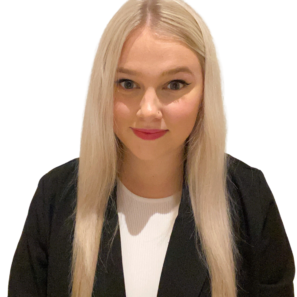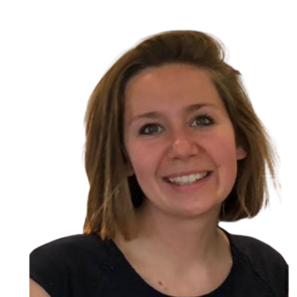Connecting Women – The legacy of Rosemary Crawley
Hear how Good Things Foundation’s former Group Finance and Human Resources Director, Margaret Bennett, honoured her friend by helping female asylum seekers and refugees access data and support.
Supporting women and marginalised people to access the online world is absolutely vital. Despite the strides that have been made towards gender equality in recent decades, there is still a vast amount of work to be done. Even in our modern and increasingly digitalised society, women and non-binary people remain on the margins.
An insight report from girls’ education charity, Wonder Foundation, investigated women’s exclusion from online learning following school closures due to Covid-19. The findings expose the reality of the gender digital divide.
Their research revealed significant differences in women’s resources, as well as their ability to access devices and internet connectivity. For instance, about 327 million fewer women than men have a smartphone and access to the mobile internet. They also found that women with intersecting identities, such as class, religion, and race, are disproportionately impacted. There’s no escaping the fact that we now live in a digital world – but only some people are able to participate in it.
Women should be able to succeed in today’s digital economy and society. In honour of her close friend and mentor, Good Things Foundation’s former Group Finance and Human Resources Director, Margaret Bennett, has helped many women do exactly that.
Honouring Rosemary – Getting Data to Women and Girls
Rosemary Crawley was a remarkable woman. Margaret describes her as “a wise and compassionate leader, mentor and friend”. She was renowned for being a “people person” and had a fierce dedication to supporting those in need, as well as being a loving mother and grandmother.
Rosemary started her career as a midwifery nurse, later setting up a support unit for young mothers in a housing association in Birmingham. She went on to become a consultant and trainer in equity, diversity and inclusion. During her retirement, Rosemary started a befriending group for female asylum seekers – a service that provided support, conversation and friendship.
Sadly, Rosemary died in January 2022, leaving a huge hole in many people’s lives. Her work had been vital for female asylum seekers and refugees to thrive, which is why Margaret – a close friend of Rosemary’s – set out to tribute her.
Through Good Things’ Digital Inclusion Network, Margaret came across SmartLyte and their project, ‘Get Families Talking’. The project sets out to tackle isolation, create opportunities, and improve lives through digital inclusion. SmartLyte does a lot of work with refugees and asylum seekers and has many female service-users – many of whom have experienced and escaped domestic abuse. Margaret thereby felt that they were the perfect organisation to honour Rosemary and her work. To support SmartLyte to do this, Margaret, who retired from Good Things Foundation at the end of February 2022, used the collection from the staff for her retirement and some money she had collected in memory of Rosemary.
Margaret reached out to Smartlyte and asked how the donation could be used to help the asylum seeker and refugee women that they supported. Following the recent launch of Good Things’ National Databank, they agreed that providing data and the support needed to deliver it to women in the local community would be incredibly valuable.
Hafsha, Founder & CEO or SmartLyte, tells us how much this donation means to them and the women they support:
“For us, it’s not just a case of distributing a device or data, it’s the whole wrap-around service. It’s the emotional wellbeing, it’s the hand-holding, it’s the signposting and making sure they get the service we’re referring to them too. With Margaret’s donation, we can say ‘come back whenever you want to, come back if you need us.’
Margaret’s donation means that we can provide a much more holistic service and that we can continue that service and continue to help these women.
“For a lot of women we support, they have experienced a huge shift in identity. Many have faced sexual abuse or they’ve been trafficked and as a result they’re hiding and have had to change their name. So if they’re better able to connect to themselves in spite of these fundamental changes in their being, all the better.
“These women need the data to access legal services, they need to connect and build friendships – having this data is about making that phone call.”
Hafsha’s comments show how incredibly valuable internet connectivity is for their female service users – helping them to access the services they need to overcome barriers and create a new path for themselves.
Why is data so important?
Data poverty is widespread, with 2 million households in the UK struggling to afford their internet bills. And just like financial poverty, data poverty cannot escape from its gendered nature.
Structural inequalities mean that women and non-binary people are more likely to experience poverty and be on low incomes. More than one fifth of women, 22%, have a persistent low income, compared to about 14% percent of men. These figures suggest that women are at a greater risk of data poverty, something that will aggravate pre-existing inequalities.
This is why Margaret’s donation was so vital – we simply cannot afford to leave women locked out of the digital world when systemic oppression already leaves them disadvantaged. Mobile data provides access to essential services and opportunities – closing the gender digital divide is imperative in the fight for gender equality.
How can you help?
If you’re a community organisation, you can help more people overcome data poverty by joining the National Databank. The databank is tackling data poverty head on by providing free sims and mobile data to those in need. However, we need the support of community organisations to help us make sure the data lands in the hands of those who need it.
The National Device Bank, delivered through community partners deep in disadvantaged communities, will allow us to provide a refurbished device alongside mobile internet access to break down the barriers of affordable access. If you’re a company who wants to donate devices please fill out this form. If you have any questions please feel free to contact us at partnerships@goodthingsfoundation.org.
Digital inclusion is no longer a nice-to-have, but a need-to-have and people still urgently need access, digital skills and support. We appreciate donations of any size as your donation can contribute to getting more households connected and comfortable using technology.

Phoebe Scholefield
Communications and External Affairs Intern
Phoebe provides support to the Communications, Marketing and External Affairs team, creating engaging social media content, supporting campaigns and writing newsletters and case studies.

Hannah Whelan
Advocacy Manager
Hannah leads on Good Things Foundation's advocacy efforts. Hannah works across teams to shape creative campaigns that lobby political actors and move people to action to tackle the UK's digital divide.
